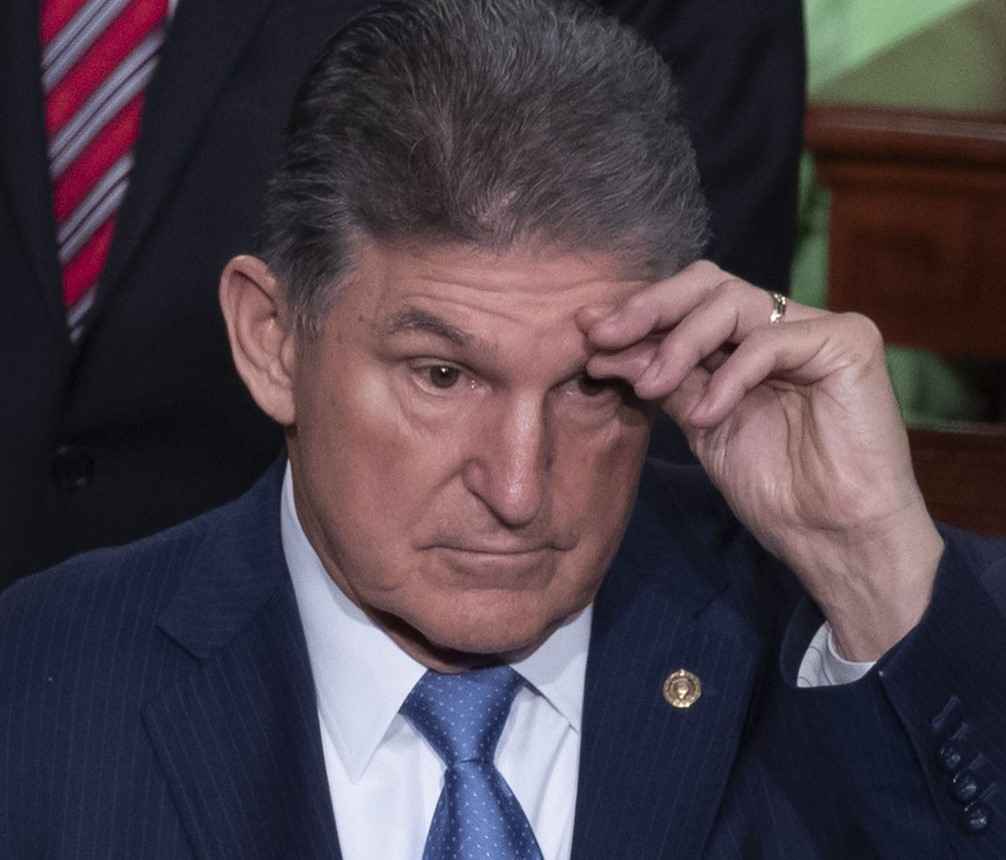The author of one of America’s most famous autobiographies, The Education of Henry Adams, wrote that “A teacher affects eternity; he can never tell where his influence stops.”
West Virginia Senator Joe Manchin must be wondering where his influence stops, as his harsh education in politics continues. Manchin is often viewed as the most important swing vote in the Senate for two reasons. First, the Senate is split 50-50 between Republicans and Democrats, so passing legislation with only Democratic support requires his vote, giving him considerable influence. Second, he is all over the map politically, making his vote constantly uncertain, ironically adding further to his clout. He opposes anti-energy policies, Medicare for all, the Green New Deal, and defunding police, but supports Obamacare, federal education funding, big labor, and entitlement programs. He supported Supreme Court Justices Neil Gorsuch and Brett Kavanaugh but opposed Amy Coney Barrett, and voted twice to impeach President Trump. He is difficult to pigeonhole.
When Democratic congressional leaders needed his vote to pass last month’s massive climate bill, comically disguised as the “Inflation Reduction Act,” they needed Joe Manchin. He didn’t like raising corporate taxes, adding 87,000 new IRS auditors, or giant subsidies for wind and solar power. So, leadership sweetened the deal by offering Manchin something he did want – a package of energy permitting reforms he has worked on for years.
Manchin’s disappointingly modest, and far from perfect, proposal would nevertheless be the first modernization – the first reform of any kind – of the 50-year-old National Environmental Policy Acy (NEPA). That is the 1970 law requiring federal agencies to consider the impact of their decisions on the environment. It was a noble goal, but over the last five decades it has evolved into a permitting maze, almost unfathomable even to the people who get paid large sums of money to obtain permits. The regulatory hurdles, authorizations, and approvals are beyond the reach of all but large companies with substantial bank accounts and expensive lobbyists. Dozens of permits and documents are needed for most projects, and every step of the process is subject to appeals, lawsuits and delay tactics of opponents, a perversion of the envisioned public process.
Manchin’s reform package includes designating energy projects of strategic national importance and prioritizing permitting to reduce energy costs and improve reliability. It sets maximum timelines for permitting, such as two years for NEPA reviews, limits litigation delays by setting a statute of limitations for court challenges, and gives agencies 180 days to make court-ordered changes, among other badly needed reforms. They lack legal teeth but would be a good start. Today, NEPA reviews average 4.5 years, often followed by protracted litigation, and the average environmental impact statement is 600 pages long.
The need for reforming NEPA is brought home by two recent lawsuits. First, the Bureau of Land Management settled with the environmental industry by suspending its 20-year plan, pausing all oil and gas leasing on 2.2 million acres in Colorado, while the agency spends years reconsidering the impacts on climate change. There are 4,712 leases on Colorado BLM land, producing over $2.3 billion and providing millions in royalties to the state and local governments to pay for schools, police, and other public services (President Biden followed up by re-imposing a complete moratorium on leasing, for which courts have already ruled he has no legal authority). Second, a federal judge in Montana reinstated an Obama-era moratorium on coal leasing, for the same reason. This abuse of NEPA isn’t about further analysis; it’s about delaying and blocking.
Nor is the issue just about energy. Airports, highways, bridges, and other infrastructure projects – including renewable energy projects – encounter roadblocks and face costly delays because of cumbersome permitting processes. That uncertainty makes many projects uneconomical and, without updating NEPA, many will never be built.

Manchin held out his vote, until his party leaders agreed to a September vote on his energy permitting reform measure, which would then be paired with a must-pass spending bill on the House side. With that assurance, he voted for the climate bill, and Democratic leaders double-crossed him before the ink was dry. House Natural Resources Committee Chairman Raul Grijalva (D-NM) said, “I didn’t shake hands” on it, and other Democrats soon piled on. So, with little support in the House, Senate Majority Leader Charles Schumer this week allowed Manchin to try attaching the measure to the spending bill on the Senate floor, but Manchin was soon forced to withdraw it for lack of votes.
Manchin expected Congress to pass permitting reform. They promised, he says. But as the Wall Street Journal points out, “The West Virginia Senator’s leverage is already gone.” Grijalva gave it away by explaining, “I wasn’t part of the negotiations.” Of course not. They left him and other House leaders out, along with numerous Democratic senators, precisely so they could use that excuse to kill Manchin’s bill. The leaders never intended to honor their commitment, as Manchin has now learned. Schumer now says he only promised a vote, not support.
Unfortunately, opposition to permitting reform is costing all Americans. The abuse of NEPA is bad for the economy, driving up prices and precluding energy independence. Perhaps it’s not just Manchin, but all of us, being educated in the harsh realities of modern politics.




Comments on this entry are closed.